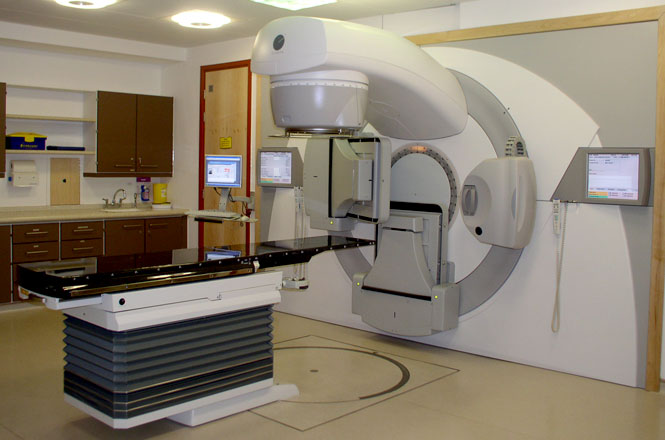Radiotherapy
What is Radiotherapy ?

Radiotherapy uses high-energy rays to treat disease. It can be given both externally and internally.
• External radiotherapy aims high-energy x-rays at the affected area using a large machine.
• Internal radiotherapy involves having radioactive material placed inside the body.
Radiotherapy works by destroying cancer cells in the area that’s being treated. Normal cells can also be damaged by radiotherapy, which may cause side effects. Cancer cells cannot repair themselves after radiotherapy, but normal cells usually can.
You can be given radiotherapy for different reasons. Doctors can give radiotherapy to try and destroy a tumour and cure the cancer. This is called curative treatment. It may be used with other treatments, such as surgery or chemotherapy.
If it’s not possible to cure the cancer, doctors may give you radiotherapy to help relieve symptoms you have. This is called palliative treatment.
The type of radiotherapy you’re given will depend on the type of cancer you have and your individual situation.
Why radiotherapy is given
Many people with cancer will have radiotherapy as part of their cancer treatment. Radiotherapy may be given for different reasons.
Curative treatment
This is given with the aim of destroying a tumour and curing the cancer. Curative treatment is also known as radical treatment. Curative treatment may be given on its own, or it may be given before or after surgery or chemotherapy. Chemotherapy is the use of anti-cancer (cytotoxic) drugs to destroy cancer cells.
If radiotherapy and chemotherapy are given at the same time, this treatment is known as chemoradiation.
Palliative treatment
This is given when it’s not possible to cure a cancer. Radiotherapy may be given to relieve symptoms such as pain. Lower doses of radiotherapy are given for palliative treatment than for curative treatment, and they’re usually given over a shorter period of time. Sometimes just a single dose is given.
Radiotherapy treatments are planned on an individual basis. This means that even if someone you’ve met has the same type of cancer as you, their radiotherapy treatment may be different.
